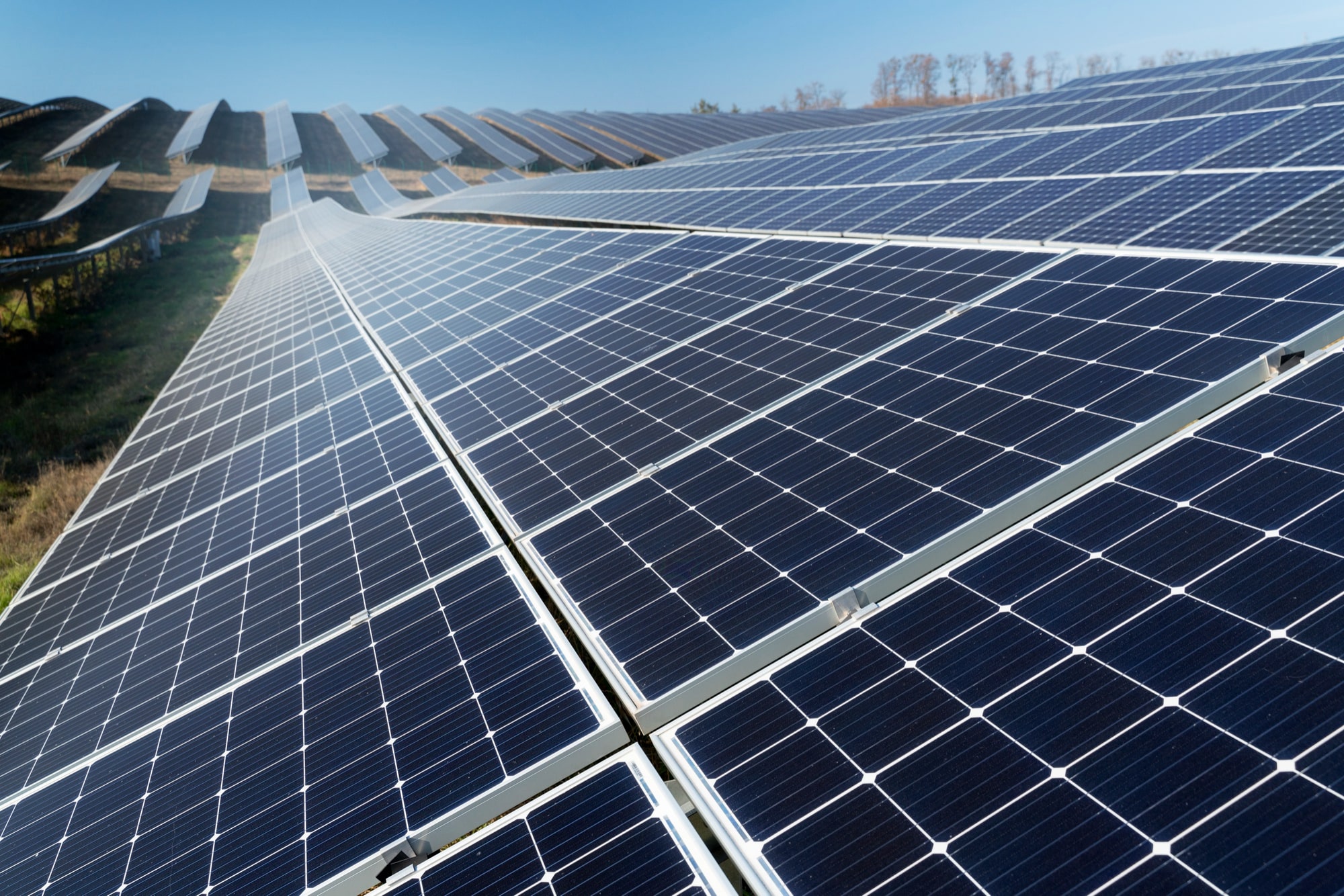Solar energy has become a clean and sustainable power source as the world becomes more conscious about the environment and our energy choices. But is solar energy all sunshine and rainbows? Let’s dive into the advantages and disadvantages of solar energy, and explore what factors you should consider before installing solar panels on your property.
Key Takeaways
- Solar energy is a clean, renewable and sustainable power source with the potential to reduce reliance on fossil fuels.
- Solar panels offer low maintenance costs, extended lifespans and cost savings for homeowners while providing greater energy independence.
- With innovative advancements in technology leading to improved efficiency & affordability, solar energy has great potential for revolutionizing our future landscape.
Understanding Solar Energy
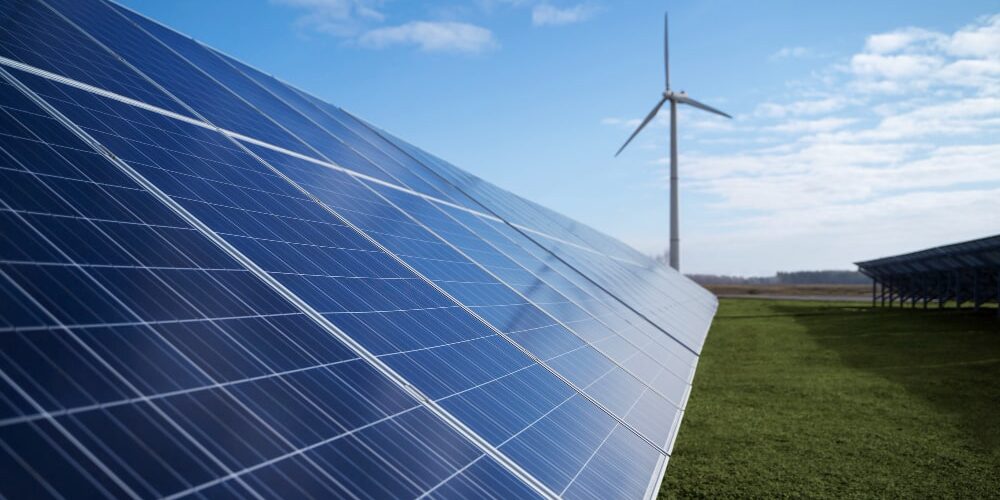
With its abundant and renewable nature, solar energy emits no carbon or heat-trapping ‘greenhouse’ gases is a popular choice for those aiming to lessen their carbon footprint and promote a cleaner environment. Installing solar panels is a fantastic way to harness the sun’s power for various applications, such as home lighting systems, water heaters, and even automobiles. Solar energy is far more sustainable than fossil fuels, and within four years of use, any emissions and carbon footprint from solar panel production are quickly offset.
The immense potential of solar power could drastically change our energy usage and reduce our dependency on fossil fuels. Solar panels can even be effective during the winter, as snowfall and shorter days may minimise energy production, but they will still generate electricity. Solar energy becomes an even more appealing choice with continuous improvements in raw materials availability, emissions reduction during manufacturing, and eco-friendly panel disposal.
How Solar Panels Work
Solar panels contain photovoltaic (PV) cells made of semiconductor materials, such as silicon, designed to absorb and convert sunlight into electricity. Efficiently absorbing sunlight, these PV cells generate a flow of direct current (DC) electricity.
An inverter then converts the DC electricity into alternating current (AC) electricity, making it suitable for powering electrical devices or storing in batteries for later use. Solar panels work even in rainy or cloudy weather, producing up to 30-50% of maximum output during cloudy weather and 10-20% during heavy rain.
The Growing Popularity of Solar Energy
Several factors, including the declining cost of solar panels and advancements in solar technology, contribute to the increasing adoption of solar energy. Solar power systems, as a subset of solar energy systems, are now more appealing to residential and commercial owners, providing innovative ways to power remote, off-grid regions, satellites, boats, and other places where channelling power from a grid is difficult or impossible.
Community solar projects are another factor contributing to the growing popularity of solar energy. Individuals can gain credits for every kilowatt-hour (kWh) a solar facility generates, offering a fantastic opportunity to benefit from renewable energy even if they cannot install solar panels on their property.
Advantages of Solar Energy
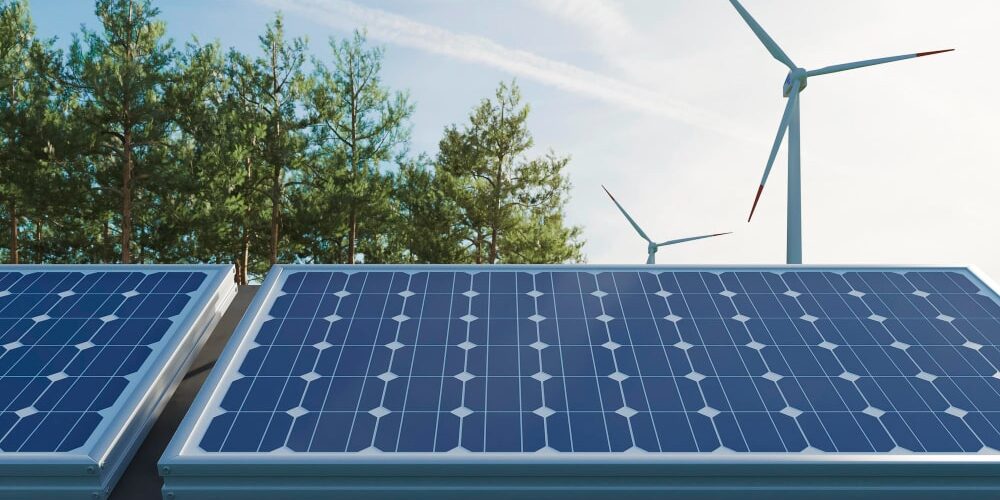
Solar energy offers numerous solar energy advantages, including:
- A reduction in our reliance on fossil fuels
- Substantial financial savings on electricity bills
- A renewable and clean energy source
- A significant reduction in carbon emissions
Utilizing solar energy can help us reduce our environmental impact and decrease our dependence on fossil fuels.
We’ll examine these advantages in further detail.
Environmentally Friendly
Solar energy is a renewable and clean energy source that offers several benefits:
- It significantly reduces carbon emissions and dependence on fossil fuels.
- As the sun is an infinite energy source, solar power is a sustainable and environmentally friendly choice.
- Solar energy reduces greenhouse gas emissions compared to fossil fuels, producing no air or water pollution during operation.
- This helps combat climate change and improve air quality.
- Solar energy also helps conserve precious water resources typically consumed by conventional power plants.
In contrast, solar energy requires minimal to no water usage, making it a more eco-friendly option than power plants that generate electricity using steam turbines. Solar panels can be recycled, further enhancing their environmental friendliness.
Lower Electricity Costs
Installing solar panels can significantly reduce electricity bills by generating electricity to meet energy needs. A residential lithium-ion solar system can range from $7,000 to $14,000, making it an affordable option for many homeowners.
Solar panels can also generate income through net metering, a process where homeowners can benefit from the excess power generated by their solar panels and sell them. Homeowners can capitalize on their system’s output by selling Solar Renewable Energy Credits (SRECs), representing a megawatt-hour of electricity generated through solar energy.
The Smart Export Guarantee (SEG) is another program that allows solar panel owners to receive payments for the surplus energy they export back to the grid.
Low Maintenance and Longevity
Solar photovoltaic panel systems boast the following benefits:
- Low maintenance costs
- Long lifespan, providing a great return on your investment
- Peak performance for an impressive 25-30 years
- Minimal maintenance, such as occasional cleaning
This ensures the reliability and cost-effectiveness of solar energy as a long-lasting energy source.
Energy Independence and Security
Solar energy offers several benefits, including:
- Greater energy independence, reducing reliance on the grid
- Backup power during outages
- Convenient storage in solar batteries for use when sunlight is not available, addressing the intermittency of solar energy.
The capacity of solar energy storage is enhanced by the number of solar panels installed and the battery’s storage capacity. This energy autonomy provides a sense of security and contributes to a cleaner and more sustainable energy landscape.
Disadvantages of Solar Energy
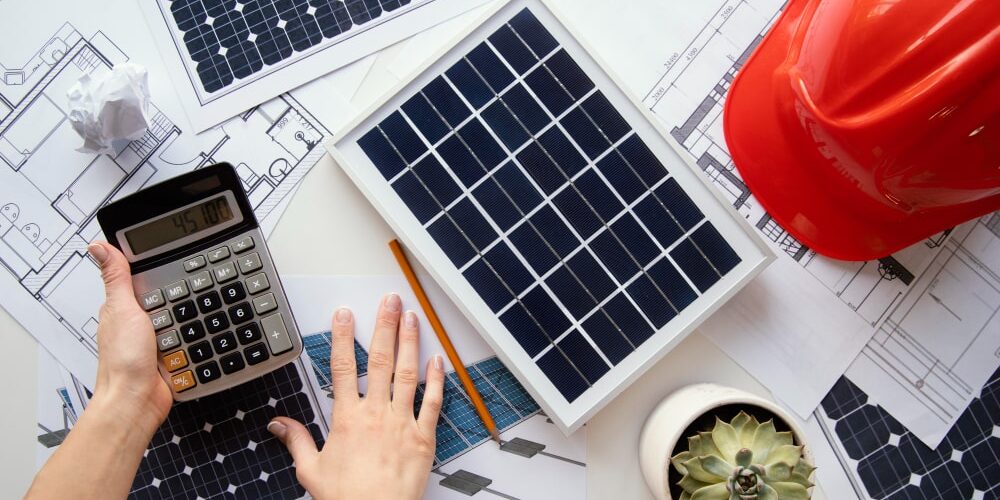
Despite the numerous benefits of solar energy, it’s also essential to consider its potential drawbacks. We’ll examine the challenges related to solar energy, including initial costs, dependency on sunlight, and space requirements.
Initial costs are often the biggest barrier to entry for solar energy.
Initial Investment and Cost
The high upfront cost of solar panel installation can be a barrier for some, though financing options and incentives are available. Some options to consider include:
- Leasing options, which may significantly reduce the initial outlay
- Government incentives and tax credits, which can help offset the cost
- Financing options, such as solar loans or power purchase agreements, which allow you to pay for the system over time
By exploring these options, you can make solar panel installation more affordable and accessible.
Furthermore, a federal tax credit of 26% is available for solar energy systems, helping offset the installation cost.
Sunlight Dependency and Intermittency
Solar energy production depends on sunlight, making it an intermittent energy source affected by weather and time of day. While solar panels still operate in the rain and produce electricity during cloudy weather, their efficiency is reduced.
A battery storage system installed with solar panels can help maximize the benefits of solar energy by:
- Storing excess energy for use during non-daylight hours
- Providing an emergency backup during power outages
- Reducing dependence on sunlight, making solar energy more reliable and consistent.
Space Requirements
Solar panels require significant space, which can be a challenge for residential installations. A 3kW system typically requires about 12 solar panels, while a 6kW system needs 24 panels, usually occupying around 200 square feet of roof space.
However, the space requirements for solar energy can be tailored to the scale of the installation, providing flexibility and convenience.
Manufacturing and Environmental Impact
The production of solar panels has some environmental downsides, though the long-term benefits often outweigh these concerns. Using materials in solar panel production, such as lead, cadmium, and arsenic, can have negative environmental impacts, but these materials can also be recycled and reused.
Moreover, solar power quickly offsets the emissions and carbon footprint of production within one to four years of use, making solar energy a more sustainable option in the long run.
Factors to Consider Before Going Solar
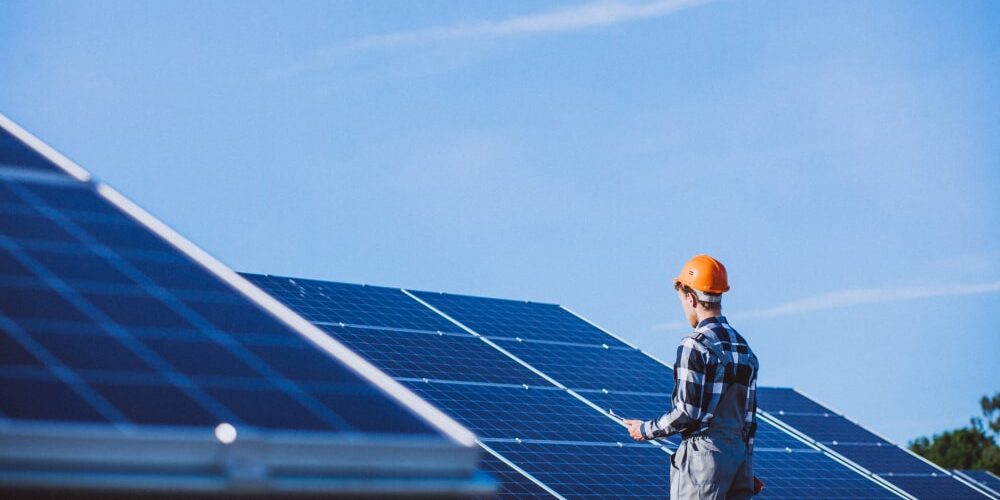
Before proceeding with solar panel installation, you should carefully consider the pros and cons and factors like location, roof suitability, and available financial incentives.
We’ll delve into these factors to assist you in making an informed decision.
Location and Climate
The efficiency of solar panels is affected by factors such as geographic location, shading, and local weather conditions. Sunny areas enable solar cells to collect energy more efficiently, while even cloudy days can still allow for some electricity production.
Considering these factors can help you determine the most suitable solar energy system, such as a solar power system, for your specific location.
Roof Suitability
A roof’s type, orientation, and condition can impact the effectiveness and cost of solar panel installation. South-facing roofs are generally the most effective for solar panels, while east- and west-facing roofs are still beneficial.
Metal roofs are highly effective in supporting solar panels, while asphalt shingles still offer some benefits. Considering these factors can help you determine your home’s best solar panel system.
Financial Incentives and Support
Various government incentives and financing options can help offset the initial cost of solar panel installation. A generous federal tax credit of 26% is available for solar energy systems, significantly reducing the cost of installation. State incentive programs offer exciting opportunities such as rebates, grants, and tax credits that vary from state to state.
Leasing options can also significantly reduce the initial outlay for a solar panel system, and the payback period for solar panels can range from 5 to 15 years, providing long-term cost savings.
Considering these financial incentives and support options can help you decide if solar energy is worthwhile.
Solar Energy Innovations and Future Outlook
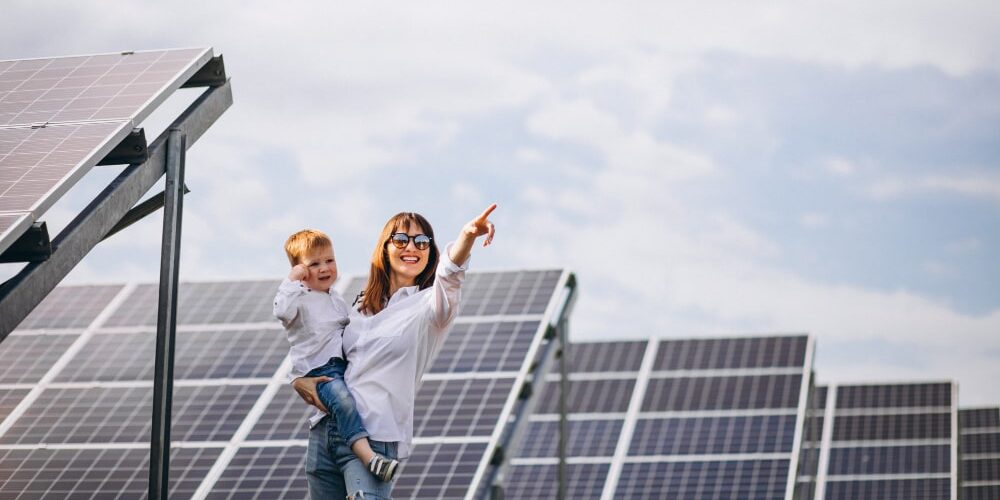
As solar energy continues to gain traction worldwide, exciting innovations and advancements are emerging, shaping the future of solar energy and its role in a sustainable energy landscape.
These advancements encompass the creation of more efficient solar cells and the application of artificial intelligence for optimization.
Improved Efficiency and Cost Reduction
Technological advancements are leading to more efficient solar panels and lower costs for consumers. New materials and technologies, such as perovskite solar cells, quantum dot solar cells, and bifacial solar cells, are increasing the efficiency of solar panels, minimizing energy loss due to reflection and absorption, resulting in improved electricity generation.
These advancements improve durability and flexibility and reduce manufacturing costs, making solar energy more affordable and accessible to more people. Some factors contributing to the affordability of solar energy include:
- Lower costs
- Government incentives
- Heightened competition in the solar industry
- Economies of scale
These factors combined contribute to making solar energy more affordable.
Emerging Solar Technologies
New solar technologies, such as perovskite solar cells, solar windows, and flexible solar cells, can potentially revolutionize the solar industry. Perovskite solar cells are lightweight, highly durable, and can be effortlessly integrated into existing structures, making them perfect for use on rooftops, in vehicles, and in portable devices.
Other innovations include agrivoltaics, which combines agriculture and solar energy to generate electricity while providing shade and protection for crops, and Insolight panel coating, which maximizes the efficiency of solar panels by reducing energy loss due to reflection and absorption.
These emerging technologies help pave the way for a more sustainable and efficient solar energy future.
The Role of Solar Energy in a Sustainable Future
Solar energy is poised to be significant in transitioning towards a more sustainable, environmentally friendly energy system. As solar panels become more efficient and cost-effective, solar energy will become increasingly accessible to people worldwide, leading to greater adoption and increased use of this clean and renewable energy source. The growing interest in solar systems is a testament to the potential of this technology.
By harnessing the sun’s power, we can move towards a more sustainable future and reduce our reliance on fossil fuels, ultimately creating a cleaner and greener world for future generations.
Summary
In conclusion, solar energy presents a myriad of advantages and some disadvantages that should be carefully considered before deciding to go solar. Solar energy is a complex and multifaceted subject, from its environmental benefits and cost savings to the challenges of initial investment and space requirements. As technology advances and solar energy becomes more accessible, it’s clear that solar power will play a significant role in shaping a more sustainable future for our planet. The sun may not always shine, but its potential to power our world is undeniable.
Frequently Asked Questions
What are the advantages and disadvantages of solar energy?
Solar energy has many advantages, including its cleanliness, versatility, and cost-effectiveness. Additionally, it provides renewable energy that does not damage the environment. However, the technology is still relatively new and requires extensive solar panel installation and maintenance investment. Nevertheless, solar energy is a great way to generate electricity with minimal environmental impact.
What are the 5 advantages of solar energy?
Solar energy offers numerous benefits, such as being renewable and inexhaustible, available everywhere, well suited to batteries and electricity grids, creating local wealth and jobs, requiring minimal maintenance, and offering technological versatility. Furthermore, residential solar panels are becoming increasingly affordable, helping users save money on their energy bills, providing power during grid outages, increasing the value of one’s home, and working in various climates.
What is the disadvantage of solar?
Solar energy systems come with a high initial cost and can be affected by temporary weather disruptions. Cloudy days reduce the amount of electricity produced, but cold temperatures don’t affect productivity.
Can solar panels still generate electricity on cloudy or rainy days?
Yes, solar panels can still generate electricity on cloudy or rainy days.
What factors should be considered when determining roof suitability for solar panels?
When determining roof suitability for solar panels, orientation, type, and condition should all be considered to ensure maximum efficiency.
